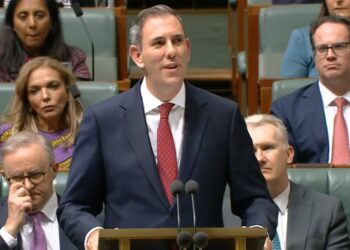Forte Consulting Solutions’ Phil Osborne, who presented to politicians including Jane Hume and Stephen Jones in Canberra this week as part of an AIOFP initiative, said previous attempts to blame the lack of available scaled advice services on ‘licensee conservatism’ were ill-informed.
“The advice industry would like nothing more than to have the provision of scaled advice as standard practice to help reduce the cost of advice for consumers,” Mr Osborne said.
“While it might be perceived that licensees are being conservative in not allowing this to occur, the reason for any conservatism is the major concern for whether a piece of scaled advice ends up in front of a body who takes the view that more information should have been given, and that penalties should apply.”
Following the recent announcement from ASIC that it would release a consultation around its current scaled advice guidelines, Mr Osborne said any new regulatory approach had to also involve AFCA and FASEA to ensure advisers were not inadvertently left open to legal action through giving scaled advice.
“We propose that those overseeing the process – politicians, ASIC, AFCA, FASEA – consult with licensees and advisers who are at the coalface to develop a common view for guidance as to what might be, as the Corporations Act already puts it, ‘reasonably apparent’ for adequate recommendation inclusions in an advice document for scaled advice,” he said.
Mr Osborne’s research indicated the initial advice process was now taking an approximate 36 hours of client time from end to end, with SOA production the largest contributor to the administrative blowout.
AIOFP executive director Peter Johnston said the association was regularly engaging with politicians to help them understand how current industry dynamics were contributing to the lack of affordable advice on the market at present.
“Politicians need to understand that any costs imposed onto advisers are immediately levied against their clients – advisers can no longer afford to absorb these costs,” Mr Johnston said.
“Advice costs have tripled over the past five years due to a massive increase in compliance paperwork that needs to be rationalised to eliminate duplication and irrelevant procedures.
“It now costs consumers a minimum of $5,000 to be onboarded with an adviser and similarly with ongoing servicing fees. Consent form legislation will increase this cost to $6,500.
“Financial advice is fast becoming a service only the wealthy can afford.”




Even if there is less regulation to service those clients on lower means, what would less regulation look like? We had FSC coming out with there proposal to remove BID for simple advice which we all immediately stomped at. My personal view is that these lower end clients need to be subsidised by the government if it can’t be subsidised by product manufacturers…
It is only partially about the regulators. It is also about the Courts, bottom feeding lawyers and the flow on effect to licensees who are scared to death of the Regs. This abysmal industry will not turn around any time soon. 10,000 advisers remaining by Dec 2021.
The current process of delivery is cumbersome and expensive.
All constituents who are conducive to receiving advice should be provided with a solution that is affordable based on their circumstance.
FASEA standard 6 will never allow scaled advice as it obliges us advisers to look beyond the customer’s stated wishes.
The biggest barrier to scaled advice is regulators like ASIC and AFCA who will always look for an excuse to persecute the adviser, rather than looking at what’s best for the consumer. When an adviser provides more information and service than the client necessarily wants, they are doing it to reduce the opportunities for ASIC and AFCA to persecute them.
The solution is to remove these biased agencies from financial advice regulation. The only financial advice regulator should be the new SDB. The SDB must be set up free from any influence or control by unions, or by political activist groups such as Choice and CALC. Unfortunately ASIC, AFCA and FASEA have all been hijacked by these extremists, who do not act in the best interests of consumers.
“The SDB must be set up free from any influence or control by unions, or by political activist groups such as Choice and CALC”…..and all product manufacturers including the FSC. Cut the umbilical cord once and for all.
Hear, hear – absolutely right.
This is much more the sort of feedback we need getting back to the government, instead of them asking the likes of AMP, IOOF and previously the big 4 banks for the state of the industry, as I’m sure doctors wouldn’t want their livelihoods shaped by what Chemist Warehouse told the government.
I know what is going to happen here.
ASIC will say that scaled advice can be delivered as long as the adviser has collected every single detail of the client’s and their immediate family’s details to hold on the client data file just in case.
Then , at a later point when the adviser is challenged in relation to the advice they will be thrown under a bus by the lawyers representing the complainant who will claim they did not consider all relevant areas.
The adviser will be the victim of a collapsed and mismanaged system, just like they currently are now.
Too true
Well done for being able to see the future accurately.
we have to get an annual agreement – SOA signed which outlines fees / signed annual agreement signed / fee agreement from the super fund to confirm the annual agreement and full soa every year to confirm circumstances, no point doing an ROA they are just as much work.
you have a lack of understanding if you think scaled advice = ROA
No matter what ASIC say publicly, it is their goal to make financial advice too expensive for 95% of the population to afford. Every ruling they have made has been aimed at increasing the cost of advice and reducing the access to independent financial advisers. The reason for this is so that the bank funds and industry funds can sell their poor performing investments without any competition from independent financial advisers. Just have a look at who the senior ASIC staff members work for/sit on boards of, after they leave ASIC.
The criminals own both the courts and the jail.
Good to see an adviser centric Association doing something meaningful about the ridiculously complex and confusing regulatory maze advisers/licencees/clients are currently subject to!! The strangulation imposed on our industry is without precedent.
None of the other advocacy groups are standing up for Advisers like AIOFP.